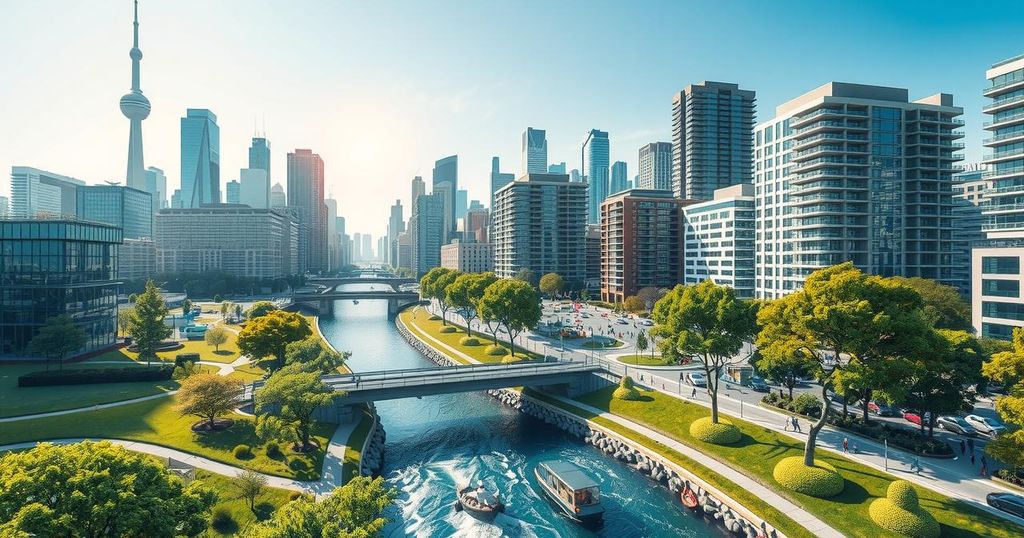Johannesburg’s Transformation: From Crime Hub to Urban Renaissance
Johannesburg has transitioned from a notorious crime hub to a revitalized city, particularly evident in the resurgence of Ponte Tower and neighborhood improvements. Despite ongoing challenges, including crime and decay, projects from Ithemba and JoziMyJozi signify hope for a brighter urban future with increased safety and livability. The city’s prospects are further bolstered by its upcoming G20 summit, setting the stage for renewed investment.
Johannesburg, known for its rich history and captivating skyline, has transformed from a perilous crime-ridden hub to a revitalized urban center. Ponte Tower, constructed in 1975 and once a symbol of decay, has experienced a remarkable revival in recent years, particularly after the 2010 FIFA World Cup. Formerly taken over by gangs, the building is now thriving again with a resurgence of residents, reflecting a broader trend of rejuvenation throughout the city.
Despite ongoing challenges, including crime and infrastructural issues like water shortages, Johannesburg has made significant strides toward recovery. The recent ending of prolonged power outages has lifted some burdens, yet the threats posed by criminal gangs and unsafe housing remain prevalent. Tragic events, such as the deadly fire in the Central Business District, have highlighted existing vulnerabilities in urban management.
Ithemba, a property company meaning “hope” in Zulu, is playing a pivotal role in the regeneration of areas like Jewel City, demonstrating a surge in demand for housing within the city. Alan Tait, a senior manager for Ithemba, reported a balance of innovative projects and increasing interest in urban living. Initiatives designed to restore lighting in previously dark areas symbolize a reinvigoration of confidence in the city’s future.
JoziMyJozi, a grassroots initiative founded in 2023, aims to enhance quality of life by addressing urban neglect. Projects include cleaning city entrances and tackling issues such as potholes and homelessness. Bea Swanepoel, the CEO of JoziMyJozi, emphasized the importance of fostering a better living environment where residents can thrive and pursue opportunities without fear.
Looking ahead, Johannesburg is set to host the G20 summit, which promises to attract investment and further spotlight the city. The community, represented by individuals like Sifiso Zikhali, remains committed to addressing local challenges and building a safer, more sustainable urban landscape. This promising outlook reflects a shared determination to elevate Johannesburg to global city standards.
Johannesburg is the largest city in South Africa and has experienced significant transformations over the decades. Once notorious for crime, violence, and urban decay, the city has begun a comprehensive revival project aimed at restoring safety and encouraging development. The resurgence of iconic structures, such as Ponte Tower, illustrates the potential for revitalization amidst historical struggles and remains integral to the narrative of urban renewal in Johannesburg.
In conclusion, Johannesburg’s journey from a crime-stricken locale to a burgeoning urban landscape illustrates the resilience and determination of its residents and local organizations. Although challenges persist, initiatives aimed at improving safety, infrastructure, and community engagement suggest a positive trajectory for the city. As Johannesburg readies itself for global scrutiny, the collective efforts of its citizens and stakeholders are crucial for achieving sustainable development and a vibrant future.
Original Source: www.bbc.co.uk




Post Comment